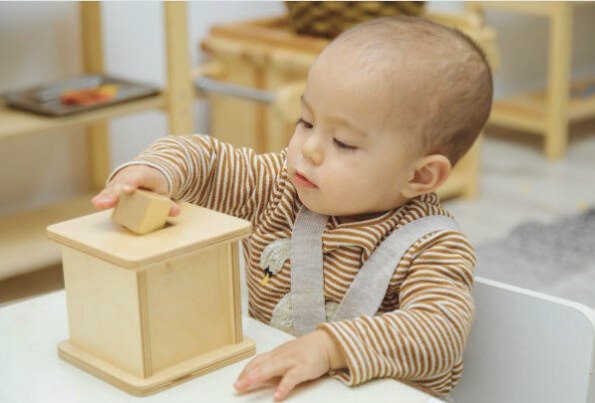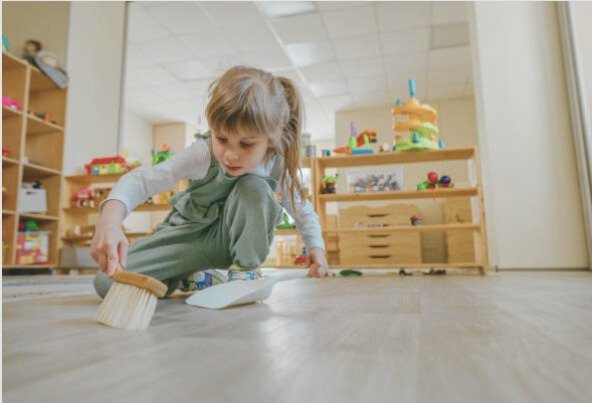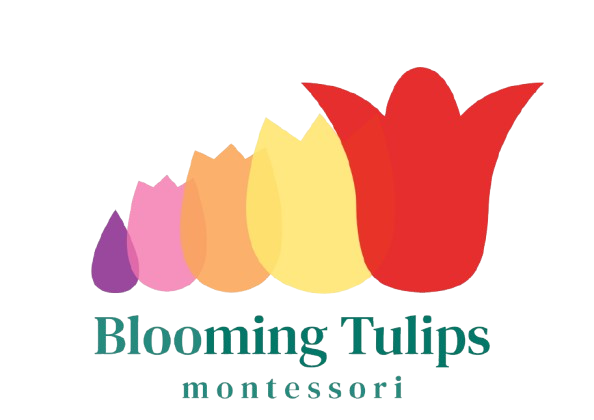Toddler
For toddler ages 18 months to 2.5-3 years old
18 months to 2.5-3 years old
At ages 18 to 36 months, toddlers achieve amazing milestones in terms of communication, independence, physical movement, problem-solving ability, and social interactions. Our programme nurtures young children, providing an environment that maximises their developmental gains during this crucial time, setting the stage for a lifetime of growth and intellectual curiosity.
“The child is both a hope and a promise for mankind. If we therefore mind this embryo as our most precious treasure, we will be working for the greatness of humanity.” – Dr MARIA MONTESSORI
Developing language Skills to Express Themselves Confidently
As your toddler grows from two-word phrases to full sentences, it’s important to help them communicate their needs with ease. Deliberately exposing your toddler to the language they’ll use daily can minimise typical language-learning frustration. In the Montessori environment, children can explore rich, precise, and varied vocabulary. Your child will receive hands-on language guidance, listen to carefully-chosen songs, and read stories with beautiful illustrations. This thoughtful approach encourages children to express themselves confidently with clear, easy-to-understand communication and prepares them to read and write later on.
“The goal of early childhood education should be to activate the child’s own natural desire to learn.” – Dr MARIA MONTESSORI
Real World Purposeful Activities
We love watching toddlers attempting to do grown-up tasks by themselves. That’s why we created the toddler community with Montessori “practical life” activities that offer real-life tools and experiences to your little ones. Tables and chairs and toilets and sinks are set at the perfect height for toddlers, and utensils and materials are designed to fit tiny hands and abilities.
Through these activities, your child learns to master useful skills – such as using dressing frames to fasten and unfasten clothes, wiping their nose, and grooming themselves. They’ll also learn how to maintain their environment by polishing mirrors or shoes, watering plants, and washing dishes. By arranging flowers and placing them in the classroom, they’ll choose a lovely spot where they add to the beauty of their community.
These real-world, purposeful activities in the Montessori practical life exercises encourage a child’s independence and self-esteem. Each task, completed independently, gives your child a sense of accomplishment and leads to greater confidence. As your child feels more successful, they’ll independently repeat tasks until they achieve mastery, reinforcing their growing confidence, which they will carry with them throughout their entire life.
Hand and Eye Coordination and Fostering Problem Solving Skills
In the Montessori toddler community, every child’s development is aided through a set of increasingly advanced activities designed to foster hand-mind coordination. Each activity is thoughtfully chosen and matched to the child’s unique moment of readiness, which helps them to solve problems and learn how to make choices towards what they desire. Along the way, the activities allow them to gain control over complex movement patterns, enabling them to achieve their goals with more ease. Cause and effect relationships in the world start making more sense as they interact with objects and people around them, making each day an adventure of exploration and growth.
Maria Montessori’s educational philosophy is centred around the idea that children possess an innate desire to learn and can do so through natural exploration and discovery. Essential principles of Montessori’s approach include promoting coordinated movement and problem-solving skills in toddlers, achieved in specially designed classrooms that encourage independent learning.
Montessori classrooms are uniquely structured to allow for a range of activities that enable children to learn at their own pace. By choosing their own activities, children gain independence and motivation to learn. Teachers utilise methods that drive the child’s physical and mental growth through hands-on learning experiences.
The Montessori approach fosters problem-solving skills by including activities that require children to analyse and think critically, in order to overcome challenges. Puzzles and building blocks are just a few examples of the materials used in Montessori classrooms.
Overall, Montessori educators aim to cultivate a supportive environment, promoting independence and confidence in children as they develop the necessary physical and mental skills for a successful future.
Toilet Independence, a Critical Milestone
Toilet independence marks a critical milestone in a child’s growth, and the Montessori approach stands out as a nurturing and compassionate framework that helps toddlers achieve it. By fostering an environment that promotes self-reliance and independence, children gradually gain trust in themselves to use the toilet without depending on others.
The Montessori method instil confidence in toddlers by providing child-friendly washrooms that make the process less daunting. This empowers children to embrace personal hygiene, inculcating a sense of responsibility and a commendable sense of achievement. Meanwhile, Montessori instructors set up consistent routines, making children feel comfortable and familiar with the process.
The mixed-age classroom setting presents another advantage of the Montessori approach to toilet independence. The younger children have older peers as role models who motivate them and inspire curiosity. The positive influence of these peers and the nurturing guidance of Montessori instructors create an encouraging and safe environment for the children to explore and master this crucial life skill. The holistic approach of the Montessori method guarantees a pleasant and stress-free toilet-independence journey for both children and their caretakers.
“The whole art of teaching is only the art of awakening the natural curiosity of young minds for the purpose of satisfying it afterwards.” – Anatole France
Instilling Life-Long Interpersonal Skills
Montessori education champions the importance of developing healthy social behaviours. By teaching young children to treat each other with respect and empathy, they instil life-long interpersonal skills.
Gracefully navigating social interactions is a foundational skill promoted by Montessori education. The importance of positive behaviour is exemplified by Montessori directresses, shaping young minds into emotionally intelligent individuals. While correcting negative behaviours is an essential approach, Montessori prioritises the importance of nurturing positive actions and responses.
Through modelling and positive reinforcement, young learners acquire invaluable skills and attitudes that nurture a sense of responsibility and understanding of others. This approach enables young children to form healthy relationships that foster growth, self-esteem, and empathy.
As part of its methodology, Montessori education cultivates well-rounded individuals with exceptional interpersonal skills. This nurturing environment empowers our youngest learners to become compassionate citizens, capable of making a meaningful difference in the world around them.
“The most important period of life is not the age of university studies, but the first one, the period from birth to the age of six.” – Dr Maria Montessori
Parents, Let’s work together!
“Your child is a unique individual with boundless potential and possibilities. By working together, we can unlock the doors to a life full of excitement and fulfilment. We can inspire young learners to embrace a life-long love for learning. From thinking mathematically to creating masterpieces, let’s nurture your child’s unique potential. Help your child to discover their capabilities and build deep foundational values that will serve them well through adulthood. Let’s help them become unstoppable forces of good in the world. Together we can do this.” Dilia
More on the intentionally prepared environment we offer for all age groups
At Blooming Tulips Montessori, we cater 0 to 5 years old little adventurers, nurturing their development with authentic passion for education through a child-centered approach.

For babies aged 12 weeks to 18 months old (Nido)
In Italian, a Montessori space designed for infants is called nido, which means “nest.” The space expresses all the warmth, love and attachment from the womb. A serene ambience for little ones to feel at ease and snug. It provides a nurturing space for infants aged 12 weeks to 18 months old. Our trained educators care for the little one’s every developmental whimper, aiding their journey to independence while warmly observing their growth and inquisitive explorations.

For children aged 2.5-3 to 5 years old (Children’s House)
Our scientifically-designed, carefully crafted programme for young ones aged 2.5-3 to 5, focuses on developing knowledge, confidence and social skills. They’ll direct their own activities, building knowledge, confidence, and social skills. Our educator’s gentle encouragement helps the children to utilise all the available materials, to explore practical life activities, geography and mathematics. Our aim is to nourish young minds and encourage growth in a compassionate and nurturing environment.
